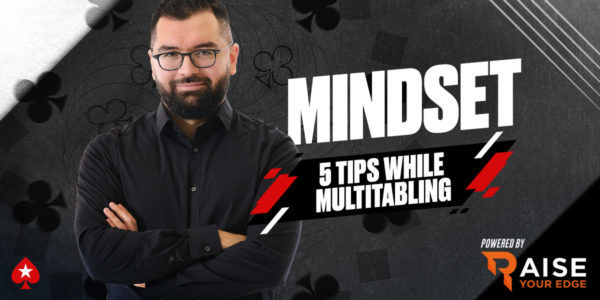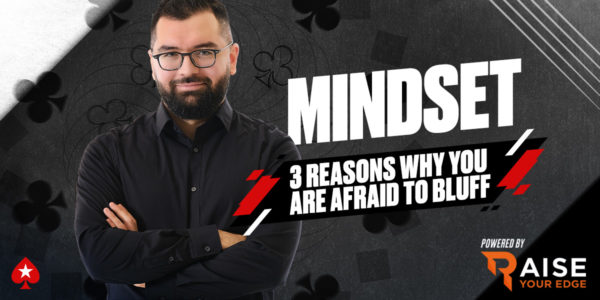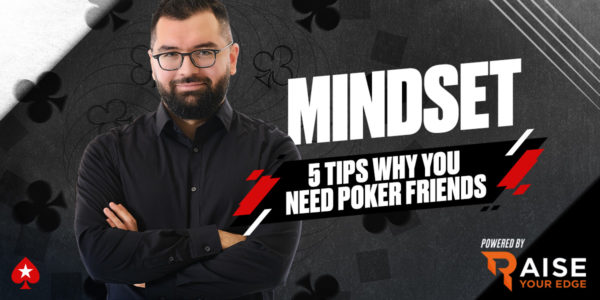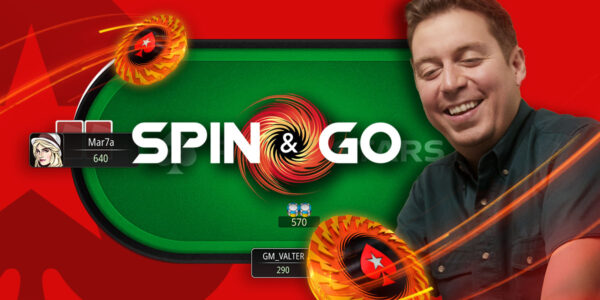Intangibles for Long Term Success in Poker
Everyone knows that to get good at poker, it’s important to learn the game. We learn the basics, then concepts for more intermediate and advanced play. It’s also important to actually play, putting into practice what we learn, refining it into our game, and mold through experience the ability to put what we’ve learned into effective action to give us an edge over our opponents.
But long term success requires more than just learn and play. There are other factors, or intangibles, that are very important to having long term success. Let’s talk about some of them now.
Time Management
Strong players don’t just learn enough skills to start marginally winning and then play, play, play. They understand that as the game evolves, it’s important to continue learning. Those who achieve longevity in this game also understand having a good life balance is important as well to keeping your mental and emotional being healthy, allowing you to focus better at the tables. Besides budgeting time for playing and study/learning, you should also budget time for reviewing your play, as well as leisure time away from all things poker to recharge the batteries, and personal time with family/friends/loved ones.


Focus
When you’re engaged in battle on the felt, it’s important to stay in the moment. The most common preflop play you’ll make is to fold, but the game doesn’t cease until you receive your next hand. What’s going on? Pay attention, watch your opponent’s actions and try to range them. You’ll be amazed at how much you can pick up that will help you with decisions later in the game. There are many distractions to take away our attention. Live, these may be things like watching the sports contest on TV, burying our head in our mobile device, or checking out the cocktail waitress. Online, we have email, skype, discord, videos, forums, literally a whole host of distractions. Avoiding them and focusing on the task at hand will help your short and long term results.
Ego
Having some ego is often associated with successful poker players. But it’s important, even critical, to keep your ego in check when things aren’t going well. It’s oaky to quit a game when it’s bad. Game selection is a valuable skill, so use it! It’s okay to quite a game when you’re losing. Making a strategic retreat, if you will, is not a sign of weakness, but a sign of strength. Your opponents may be playing better than you realize. You may be playing worse than you realize. Either way, if you’re stuck and losing, your image is bad. Live to fight another day. When you are going through a bad run or downswing, be sure to reflect honestly on your play when doing review sessions. And don’t hesitate to set your ego aside and step down in limits while riding it out… your bankroll will thank you for it.
Open Mind
Closed mindedness hinders learning. You never know everything! You do make mistakes and have leaks. Those are statements true of everyone. In game play, there may be more than one +EV way to play a certain spot. Keeping an open mind, along with evaluating things fairly and honestly, is essential to evolving your game.
Balance
There is a life outside of poker, taking part in it is important! Make sure to prioritize important things. Poker is a sedentary endeavor. Take care of your physical health by eating well and getting regular exercise. Take care of your mental and emotional health by doing activities you enjoy outside of poker, spending time with friends and loved ones, and making personal time to keep yourself feeling fresh. Even if it’s only 1 day a week you put poker to the side, it’s likely you’ll feel better, more refreshed, and focused when you are engaged in the game the other 6 days.
Goal Setting
Setting goals is something successful people in all fields of achievement do. And yet many aspiring poker players don’t set any goals for themselves, or when they do they choose poorly. For starters, I think it makes sense to set SMART goals. SMART is an acronym that stands for Specific, Measureable, Achievable, Realistic, and Time bound. If you aren’t familiar with this, a google search on SMART goal setting will provide all the info you need to create your own. When it comes to poker, try to avoid monetary goals. This is the most common thing poker players do… “My goal is to win $X this month, and $Y this year”. This is problematic because, while we do control our own decisions, we can’t control the results. What happens for example if you hit $X in profit half way through the month? You may restrict your playing time now to avoid falling below this monthly monetary goal. What if you’re 25 days through the month and way short of $X? Now the tendency is to press in more hours to try and get there. In the first case, you’re reducing hours when playing and running well, and in the latter, adding hours when things haven’t been going quite to specs… the exact opposite of what you really want to do. I would instead encourage goals that are based around training/learning time, review time, and personal achievements not related to monetary success at the tables.
Discipline
During game play, this typically means things like keeping focus, emotional control, playing solid even when things are going very well or very poorly, etc. This also extends to things like taking breaks when necessary, maintaining good study and self-review habits, and staying centered mentally and emotionally as much as possible when things are going sideways. Players who struggle to maintain their discipline in poker, also struggle to maintain their bankroll.
Getting good at poker is hard work. If it were easy, everyone would be doing it! But once you’ve put in the work and have gotten good, the work doesn’t end there. Staying good, and building long term success, is something that eludes many otherwise decent players. If you can build a strong foundation in the intangibles however, you’ll be well on your way to longevity in a game where many young hot shots fall by the wayside.
Are there other things you thing are intangible to long term success in poker?













